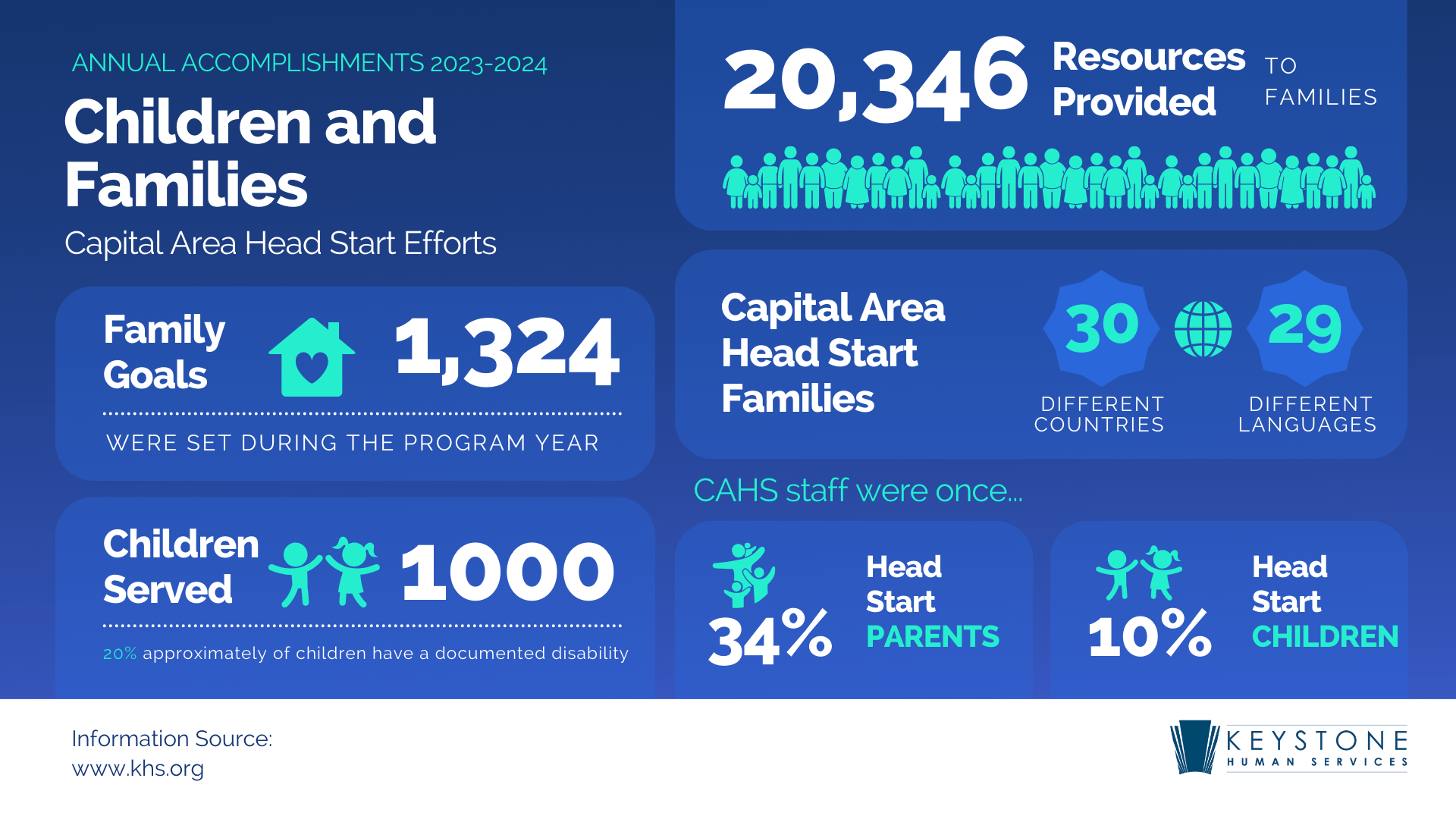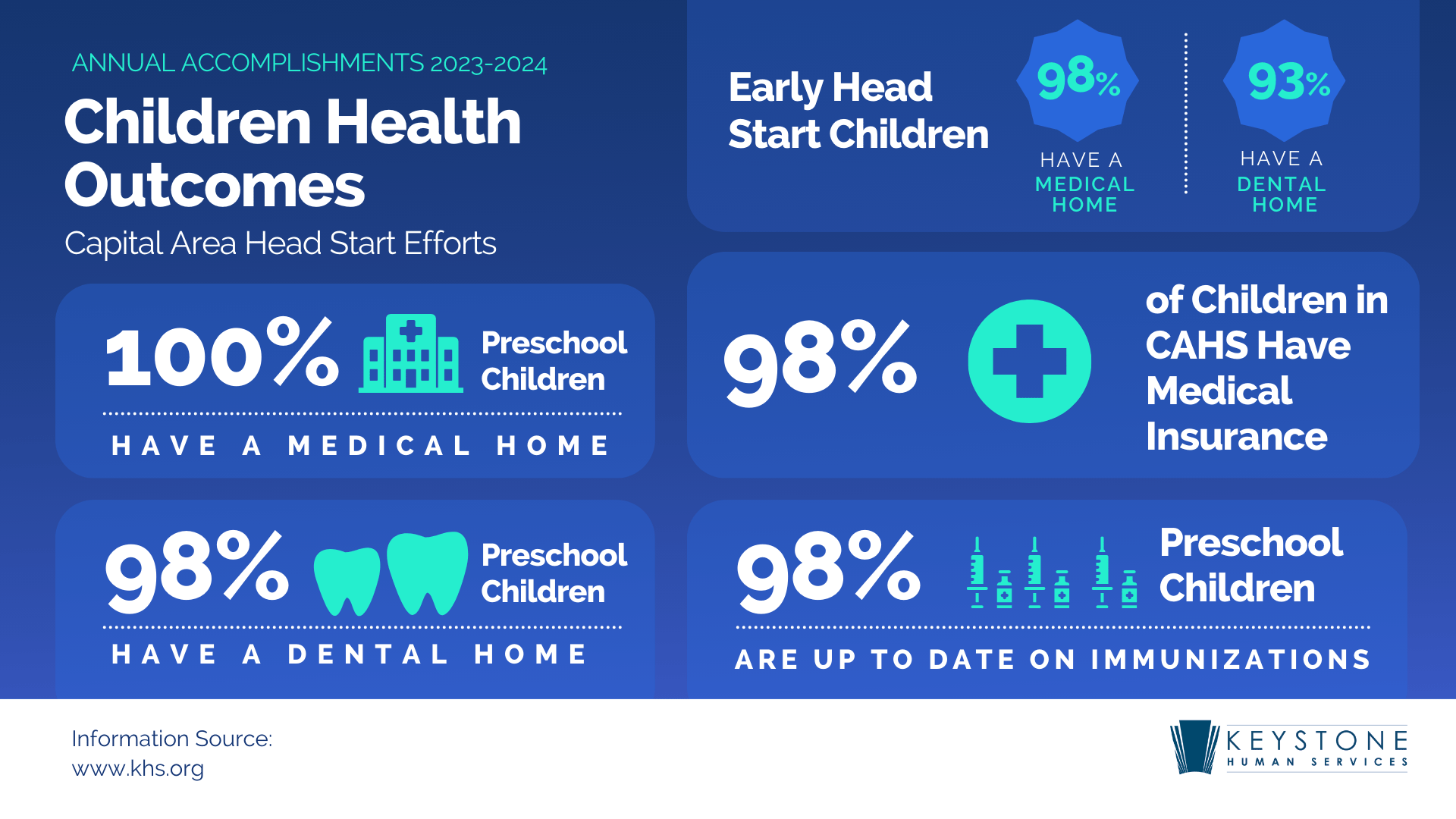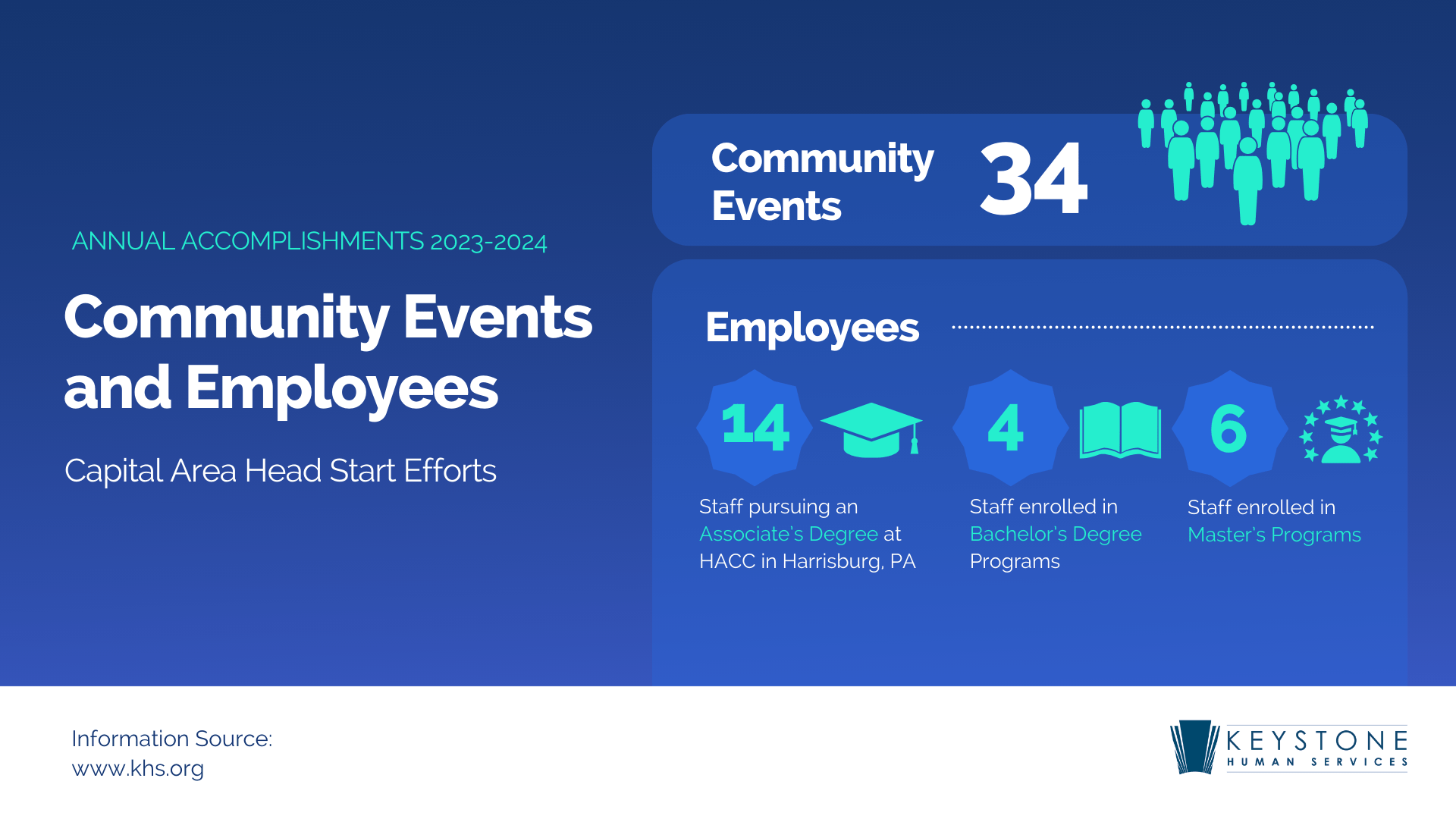Join us on Facebook. You’ll find the latest news, photos and videos.
Capital Area Head Start serves children and families in Dauphin, Cumberland, and Perry Counties in Pennsylvania, preparing children and families for success in school and life. We’re so much more than early childhood education. Our programs are designed to support children’s health and well-being, and we connect families with local resources they can continue to use long after their child has started kindergarten.



Children transitioning to kindergarten are ready for school in 16 of 19 school readiness indicators. In the three remaining three indicators where children are still developing school readiness, children showed 1-1.5 years of growth in a 9-month period. With these gains, skills in these three indicators are close to school readiness.
Teachers engaged children and families in 375 activities specifically designed to support the transition to school.
We receive both public and private funds to continue our mission. Three quarters of our budget is spent on salaries and benefits, and the remaining funding is dedicated to service operations, including parent activities, classroom supplies, and professional development.
Join us on Facebook. You’ll find the latest news, photos and videos.
Join us on X (formerly Twitter). You’ll find the latest news, photos and videos.
Join us on LinkedIn. You’ll find the latest news, photos and videos.
Join us on YouTube. You’ll find the latest news, photos and videos.
Join us on Instagram. You’ll find the latest news, photos and videos.